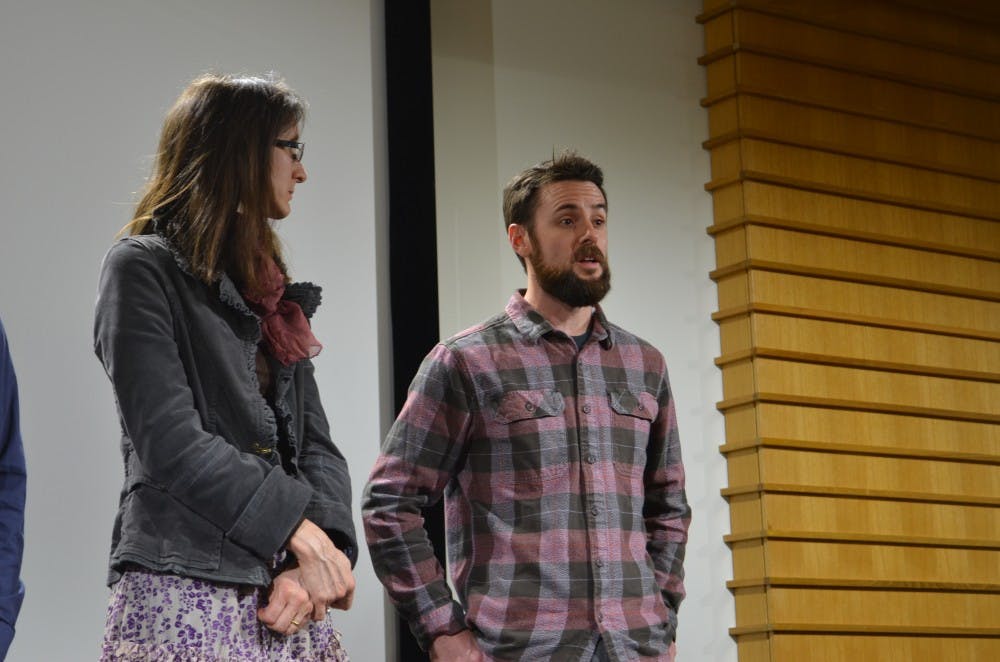AU’s Center for Environmental Filmmaking hosted its 10th Annual Spring Film Series in conjunction with the D.C. Environmental Film Festival from March 24-31 featuring short films by students, panel discussions with experts and film screenings.
The festival offered several opportunities to discuss controversial issues. On March 27, Disney resort designer Joe Rohde screened his film “The Leopard in the Land,” which followed him as he wandered Mongolia on his search for the snow leopard. Initially, his plan was to sell his landscape paintings to raise money for snow leopard conservation efforts, but he realized making a film would spread awareness further.
Rohde said going to Mongolia was his lifelong dream, but nothing happened until he found a way to make the trip about more than himself. Protecting snow leopards became his motivation and kept him going despite the challenges.
“When it gets cold, you can’t back out,” Rohde said. “You promised someone you were going to do something, and that propels you forward.”
Students also played a prominent role in the festival. On March 31, students in School of Communication professor Mike English’s “Environmental and Wildlife Production” class presented its documentary “Chesapeake Villages” following fishermen on the Chesapeake Bay. The 16-week crew included 15 AU students.
“There’s always the film you want to make, the film you made, and the film you wish you made,” Nick Zachar said. “But I’m very satisfied with the film we made.”
Later that night, Greenpeace co-sponsored the event and revealed the winners of their “Postcards from Climate Change” competition. The winning film was “Ballad of Holland Island House” by Lynn Tomlinson, an animated short from the point of view of the last house on a sinking island in the Chesapeake. Tomlinson’s process involved smearing clay on a glass base heated from below.
The Ballad of Holland Island House from Lynn Tomlinson on https://vimeo.com">Vimeo.
While the festival offered many screenings, it also offered opportunities to think about the purpose of film. Stephanie Flack, executive director of the Environmental Film Festival, introduced a panel discussing the challenges of producing impactful films on March 26. The panelists were James Redford (son of legendary actor Robert), Jon Fitzgerald, Sheila Leddy, and Jody Arlington.
Redford, founder of the Redford Center, advised the audience to underestimate the intangible effects of documentaries.
“If my film plants a seed of social justice in the audience, that can be as important as any tangible effect,” Redford said.
Fitzgerald and Arlington discussed documentaries from different angles, with Fitzgerald bringing in examples from his work with the Hollywood Film Festival and Arlington addressing the policy side. Leddy, executive director of the Fledgling Fund, spoke about the importance of showcasing the local impacts of climate change.
“It’s especially important to target kids because the ideas stay with them, and the youth power the movement,” Leddy said.
Attendees of this year’s festival had the opportunity to see work by students and professionals, as well as pieces on the local and global impact of climate change, and were left with the message that there’s still much be done to save the planet.
Follow @adenamio





